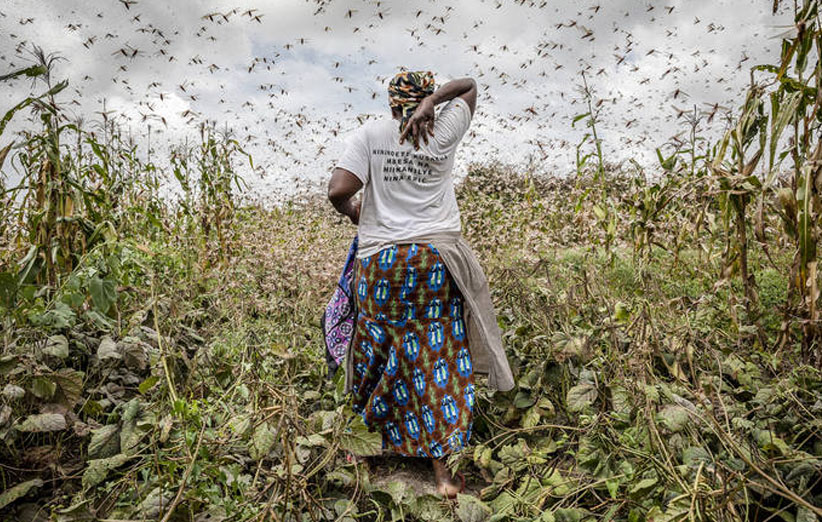(3 minutes read)
· Notwithstanding the travel restrictions arising out of
Covid-19 , the Food and Agriculture Organization (FAO) of the UN is
working out plans for abating Desert Locust upsurge in East Africa
· So far, under the FAO supervision, 240,000 hectares have been
treated with chemical and bio-pesticides across the six countries and
the locals have been trained for undertaking aerial and ground
operations for sprinkling pesticides
Notwithstanding the travel restrictions arising out of Covid-19 , the
Food and Agriculture Organization (FAO) of the UN is working out
plans for abating Desert Locust upsurge in East Africa. The locust
attack is posing serious problems of livelihood for over 20 million
people living in six East African countries like Ethiopia, Kenya
Somalia, South Sudan, Uganda and Tanzania. Yemen is the other country,
which is facing the locust scourge, which is having a toll on its food
grain crops.
In the meantime, FAO has scaled up the quantum of its Desert Locust
Fund from US$ 111.1 to US$153.2 million as pledged before. It has
already received funding from Belgium, China, Canada, Denmark, France,
Germany, Italy, the Netherlands, Saudi Arabia, Switzerland, Sweden etc
as also from various private funding organizations.
FAO’s Desert Locust monitoring, forecasting and control have been in
operation since 50 years. Locust attacks come very regularly in
African countries, particularly in the Eastern Africa. Widespread
rainfall in March is believed to be the trigger of the locust attack.
The attack can continue for some more months. Swarms of locusts cause
heavy damage to the crops and yields can get considerably reduced.
Recently, a new generation of locusts is found in Iran and Yemen,
which needs more delicate and sophisticated methods to drive the
hungry locusts away. The type of support being extended by FAO include
monitoring and aerial and ground spraying
So far, under the FAO supervision, 240,000 hectares have been treated
with chemical and bio-pesticides across the six countries and the
locals have been trained for undertaking aerial and ground operations
for sprinkling pesticides.





